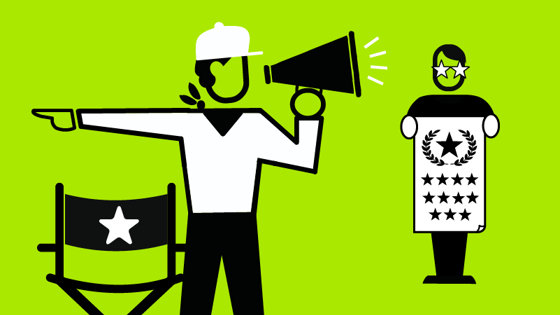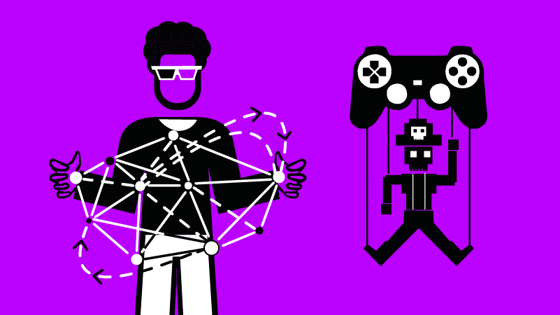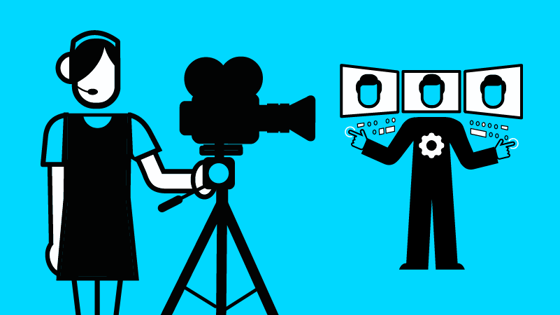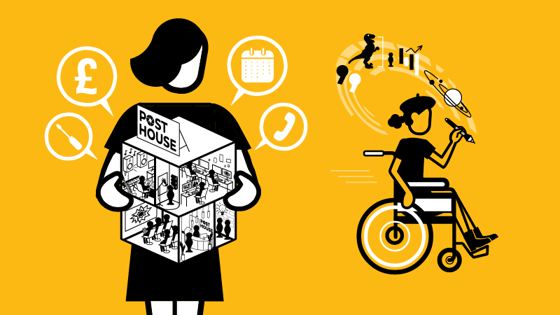Broadcast engineering
Trainee software engineer
Also known as: Junior software engineer, Trainee software developer, Trainee software technician, Trainee coder
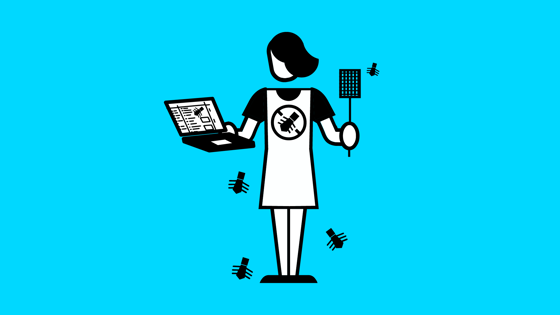
What does a trainee software engineer do?
Trainee software engineers learn about software engineering in a broadcast environment. Although they’re still learning the ropes, they could be part of a team working on very high-profile projects watched by millions of people. For example, a trainee might help to make software for a 24-hour election programme that sends hundreds of results from the regional outside broadcast units back to the studio. They might also develop software to make the sound effects, lighting and LED screens sync up on a big entertainment programme like Strictly Come Dancing.
Trainee software engineers mainly write simple code and get rid of bugs in software. They may also help develop software by testing it out. Trainees are guided by more senior software engineers, so if you like the sound of developing your skills on the job, this could be a great position for you.
If you're self-motivated and keen to learn, a role as a trainee software engineer would help to improve your coding skills, work with new technologies and move up to more senior jobs in software development.
Software engineers are always in demand and are paid well. This is also a fairly flexible job and even trainees often have the option to work from home. Senior software engineers often choose to work freelance, so if you’d eventually like to work in your own surroundings full-time, then this could be a great route for you.
Watch and read
What is a trainee software engineer good at?
- Coding: being interested in coding and having basic coding skills; being able to pick up new programming languages (the language of coding) quickly
- Learning by watching and listening: observing what’s happening, taking initiative, asking questions at the appropriate time
- Problem solving: being logical and methodical and not being defeated by challenges
- Communication: writing clear reports, documenting when software is tested, feedback from users and bugs found in the software.
Who does a trainee software engineer work with?
Mainly with more senior software engineers. As they become more senior, they might go on to work with people who develop software for broadcasting, like R&D engineers, design engineers and network systems engineers, or with people and firms that set up and look after it, like software installation companies and broadcast maintenance teams.
How do I become a trainee software engineer
You need to be great with technology and have an interest in broadcasting. If you’re the person in your family who’s always asked to help fix phones and laptops, if you love problem solving or if you’ve already dipped your toes into coding, this might be the job for you.
University courses are a great way to become good enough at programming to make a career out of it, although there are online courses and apprenticeships that can give you the skills you need to get an entry-level trainee role.
At school or college
If you’d like to be a software engineer in any industry, taking an A-level in computer science is a good idea. A-levels in maths or physics would complement this well.
As software engineers are in short supply and well-paid, some people switch careers to software engineering by taking a specialist qualification via a ‘coding bootcamp’. If this interests you, make sure you choose a course that has been accredited by the Chartered Institute for IT.
If you want to get into software engineering straight out of school or college, the following Level 3 vocational qualifications are especially helpful:
- Level 3 Certificate in Programming
- Level 3 Diploma in Software Development
Many engineering courses include software modules or allow you to specialise in software. The following Level 3 vocational qualifications are examples of this:
- BTEC in Engineering with Engineering Maths
- Cambridge Technical Extended Certificate in Engineering
- BTEC National Foundation Diploma in Engineering
- C&G Technical Certificate in Engineering
- EAL Technical Diploma/Extended Diploma in Engineering Technologies
Selected schools and colleges have also started offering T-levels – a qualification equivalent to three A-levels that is designed to help you get into the industry of your choice. Study is 80% classroom- and 20% work placement-based. The following T-levels are about designing and developing software or include those skills within the course:
- Digital Production, Design and Development
- Digital Support Services
- Digital Business Services
Apprenticeships
Apprenticeships are jobs with training. Search for apprenticeships in broadcast engineering with broadcasters like BBC and Sky. Go to What’s an apprenticeship? to find out more and Where can I find an apprenticeship? to find apprenticeships in your region. Alternatively, you can approach companies directly. Take a look at our list of apprenticeships to find the schemes of the main broadcasters.
You can also find software engineering apprenticeships in other industries and transfer to broadcasting later on. For general software engineering, look for coding apprenticeships that are accredited by the Chartered Institute for IT.
Build a portfolio
Create a software engineering portfolio, a website that shows off the work you’ve done and the skills you have. There are lots of articles online showing you how to do this.
Get a degree
A degree in a maths or science subject would stand you in good stead for entering the world of software engineering as a trainee, but a computer science or similar degree is the best option. Go to ScreenSkills Select to find university and college courses accredited by ScreenSkills.
Look outside the industry
If you don’t go into broadcast engineering straight away, you might become a software engineer in industries such as telecoms, control systems or graphic design – or something completely different! Nearly every organisation – from county councils to the NHS to private businesses – now needs to hire software engineers to help with their website and apps.
Get work experience
Write to specialist IT firms and ask if they offer work experience for aspiring software engineers. Take a look at the BBC’s software engineering graduate scheme and the work experience opportunities and graduate schemes that other big broadcasters like ITV, channel 4 and Sky are offering.
University courses can also help you get work experience placements; some include a year in industry. Carrying out your own projects such as building a computer from scratch or doing some coding will give you great experience as well.
Take a short course
There are plenty of bootcamps and online courses that can help you learn to code. It’s possible to move into this career from something quite different by doing a coding bootcamp that is accredited by the Chartered Institute for IT.
If you are over 18, make a ScreenSkills account and check out ScreenSkills’ Training and opportunities page. Click on Training to see what courses are available, whether they are in person or online. The training doesn’t have to be linked directly to broadcast engineering; for example, a short course on developing resilience would help you understand how to thrive in challenging circumstances.
Network
Create a LinkedIn profile. See if there are Facebook pages or other social media groups for IT professionals, or people who are interested in programming.
Search for jobs
Search for jobs on the broadcasters’ websites as well as on LinkedIn and other job-hunting websites. Make use of the ScreenSkills jobs board. You can also send a short speculative letter with your CV to the head of technology or head of IT support.
You might also be interested in...
Being an IT support engineer (another job that’s about problem solving) or becoming a broadcast technical consultant or R&D engineer specialising in software.
Further resources
- BCS, The Chartered Institute for IT | BCS
- UTAW: United Tech and Allied Workers
- Why the Industry needs more Broadcast Engineers | NFTS
- BritishFilm Commission list of UK studios
- Engineering Council
- Rise: Women in Broadcast
- The Institution of Engineering and Technology
- The International Trade Association for the Broadcast & Media Industry
- Society of Media Professionals, Technologists and Engineers
- International Broadcasting Convention
- The Media Production & Technology Show
- E&T (Engineering & Technology) magazine
- NEP UK and Ireland
- Broadcast – Tech Talks
- Broadcast Buddy TV YouTube channel
- BBC Research and Development
- BBC Academy
- ITV Entry Careers
- Sky early careers
- 4Skills (Channel 4)
